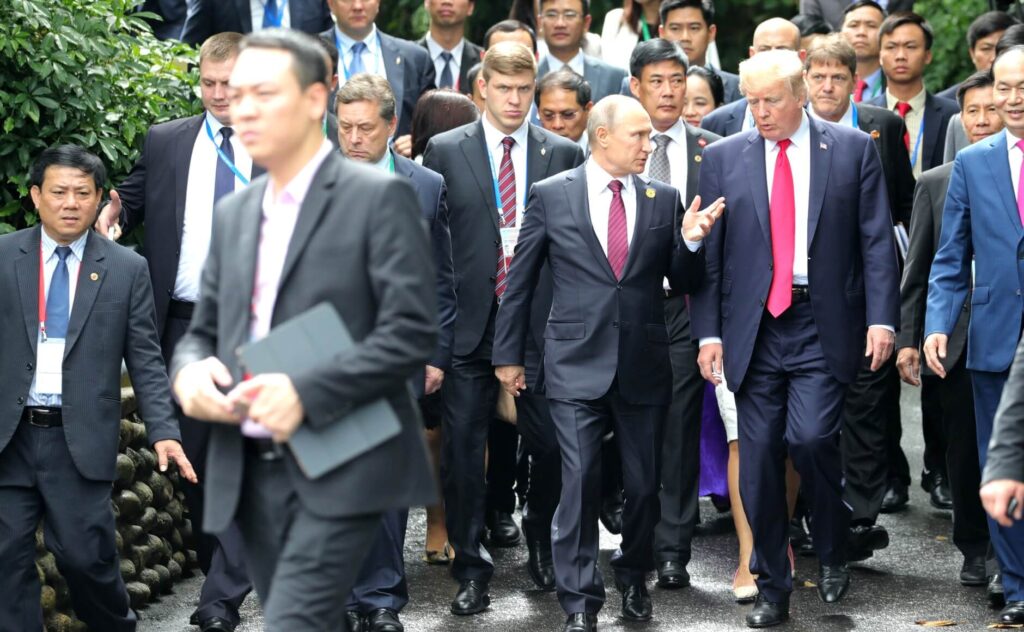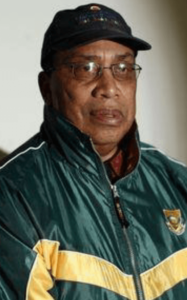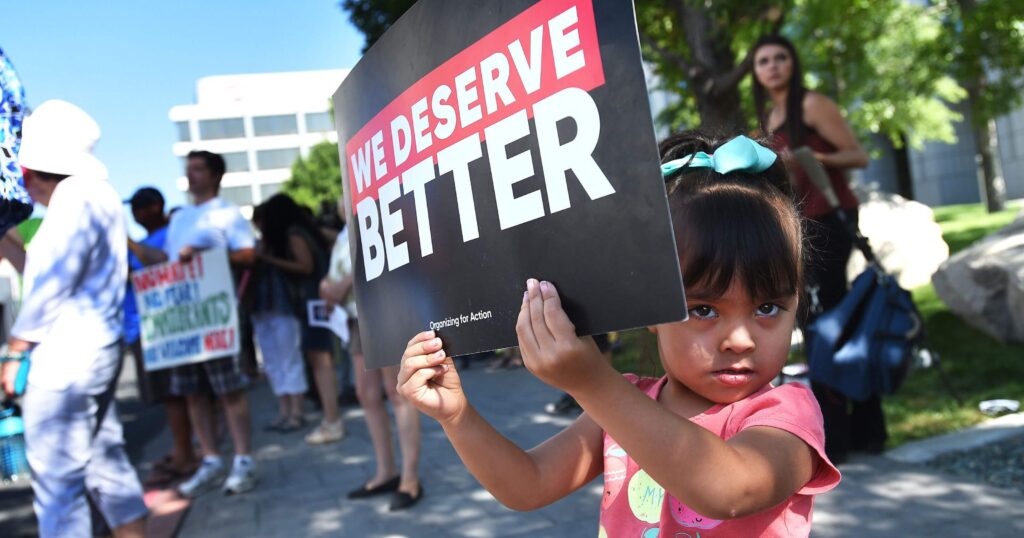Tag: Lela Biggus ’18
Trump Spreading Anti-American Sentiment
by The Cowl Editor on November 16, 2017
Opinion

by Lela Biggus ’18
Opinion Staff
Last November’s resolve of grieving Democrats, “it’s only four years,” is not so comforting anymore. In the era of Trump, the United States will see its global economic dominance in sharp decline, with China already poised to take its place.
Expert Thomas Sanderson spoke during a Board of Programmers-sponsored lecture on Monday about his work researching sources of global threats and international conflict. Sanderson is an investigative researcher of terrorism and insurgency with the Center for Strategic & International Studies.
Sanderson, who has conducted research in 70 countries and encountered terrorists, traffickers, and insurgent movements, had plenty to share with attendees interested in international relations, political science, or global studies.
His 90-minute lecture was packed with riveting material and stories from the field. One point that Sanderson mentioned was particularly interesting: the U.S. is newly considered a threat to its own security and global economic dominance. A lot has happened in just this past week to confirm it.
Threat of nuclear conflict with North Korea is escalating—nothing new—but Trump’s regrettably phrased denouncements of Kim Jong-un in the past have not been beneficial in de-escalating international tensions.
The North Korean leader released a statement last week calling Trump a “destroyer of world peace and stability” who “begged for a nuclear war on the Korean peninsula,” during Trump’s recent trip to Asia.
While Kim Jong-un may have made a similar claim regardless of whether or not Trump previously called him a “little rocket man” on whose country he would unleash “fire and fury,” Trump’s unfiltered, emotional backlash subjects the world to unimaginable risk. Trump sent out another tweet on Saturday in his refined diplomatic fashion, calling Kim Jong-un “short and fat.”
After meeting President Xi Jinping of China in Beijing last week, President Trump praised the leader for enforcing United Nations sanctions on North Korea.
Trump also addressed the sizable U.S. trade deficit with China, saying China cannot be blamed for their trade practices before shaming past U.S. administrations for allowing the “out of control trade deficit to take place and to grow.”
Trump’s statement publicly highlighted U.S. weaknesses on trade with China at a time when U.S. economic dominance in the region is beginning to falter.
President Trump’s dramatic break with the Trans-Pacific Partnership in order to put “America First” also reflected a relinquishing of economic power to China. Pulling out of the TPP is harmful for the U.S. economy in the long term as U.S. dominance in Asia continues to slip.
Ironically, it was President Obama’s eagerness in negotiating the agreement that expanded its breadth from four countries—New Zealand, Chile, Singapore, and Brunei—to twelve: Japan, Malaysia, Vietnam, Singapore, Brunei, Australia, New Zealand, Canada, Mexico, Chile, Peru, and, until Trump, the U.S.
The proposed partnership, now excluding the U.S., is highly complex and controversial. It marked a major step in Obama’s “pivot to Asia” design. The deal excluded China in order to sway Asian economies towards the West and hinder China’s command of markets in the region.
A free-trade agreement with labor competitive Asia-Pacific countries may have driven down U.S. wages and employment in certain manufacturing industries. The fact remains, however, that the TPP would have curtailed Chinese control of the region by decreasing Asian countries’ economic dependency on China. Negotiations on the TPP are proceeding without the U.S.—despite strong consensus that it would fall apart—with the Vietnamese Trade Minister commenting that members have now “overcome the hardest part.”
As Sanderson pointed out, the American economic system is the playing field on which the global economy has had to operate, but it does not have to stay that way.
The dollar has been the popular global currency since the abandonment of the gold standard and the 1944 Bretton Woods agreements, but a shift towards other powerful Asian currencies is certainly possible.
Trump may be socially conservative, but he is not so in terms of fiscal policy. By putting “America First,” he has foolishly enflamed tensions with North Korea and rejected a trade policy that would have secured U.S. economic influence in Asia.
Scholar Greg Ricks Inspires Student Activism
by The Cowl Editor on November 2, 2017
Campus

by Lela Biggus ’18
Opinion Staff
Global Studies Visiting Scholar Dr. Greg Ricks, arrived at Providence College on Monday, October 23, for a week of conversation about social justice and racial equality, visits to public and community service and global studies classes, and gatherings with faculty and students over dinner and ice cream.
As a lifelong advocate of equal opportunity education, diversity, and youth activism, his arrival highlights aspects of the college experience that seem to be lacking on our own campus at the moment.
Ricks comes to PC from Stellenbosch University in Cape Town, South Africa where he is a Senior Fellow of Multicultural Education. Throughout his career he has served as academic dean at Dartmouth College, Sarah Lawrence College, and Stanford University, and more recently, vice president of City Year, a nonprofit organization that focuses on mentoring at-risk students, and founder of City Year in South Africa.
Global studies and public and community service students and faculty joined Ricks on Wednesday night for an ice cream social and community conversation.
Ricks shared with students his passion for working with young activists, his past experience co-creating civic engagement conferences and organizations, and his excitement for the potential that globally minded, community-oriented students possess.
Ricks shared the story of how he was involved in the foundation of the Campus Outreach Opportunity League, or COOL, in 1984. COOL formed in response to a lack of structured opportunities for university students to become engaged with their communities and carry out service in a thoughtful, organized way.
His friend and fellow student at Harvard University, Wayne Meisel, first conceptualized COOL as a way for college students across the country to become more involved in campus and community service and activism. To begin to spread his message, Meisel walked from Maine to Washington, D.C., sharing his passion for campus activism with university campuses and student groups along the way.
Ricks arrives at a critical moment in Providence College campus life. The Snapchat incident of this past week is extremely concerning; it has deeply hurt members of our student body and only further aggravates the racial divide that still exists between students.
In response, 300 students attended a campus meeting addressing the offensive photo and immediate steps are being taken by administration in an attempt to stop such incidents from happening again.
When events like these happen, and they have with some frequency since I arrived at PC, the power of united student voices that follows is impossible to ignore. What we are slowly learning is the dire need for a more inclusive educational experience that encompasses cultural competency and an awareness of one’s position in both Providence College and global communities.
Meisel, Ricks, and many others were at the forefront of a national student movement based on civic engagement, student leadership, and community-based learning.
The prevalence of these values is clear on our own campus in the form of global service-learning (GSL) courses. GSL is the product of the deep partnership that exists between the Feinstein Institute for Public Service and the Global Studies Department.
Students from different majors and areas of study should, if time and resources permit, consider applying for a GSL course.
These courses are well crafted and structured to be a mutually beneficial experience for Providence College students and our partners around the world.
They are an excellent way to diversify one’s education and become more aware of pressing global issues that matter for PC student life just as much as they matter in the bigger picture.
Ricks will only be on campus with us for a week, but his legacy of student activism and service preceded his arrival and will remain at PC when he returns to Cape Town. Global service-learning and community engagement should be a critical component of not only the Global Studies and Public and Community Service programs, but other areas of study as well.
GSL directly forces students out of their comfort zones and into cross-cultural interactions that have an incredible impact, and are much needed at PC right now.
The Myth of Christopher Columbus: What Are We Really Celebrating on Columbus Day?
by The Cowl Editor on October 19, 2017
Opinion

by Lela Biggus ’18
Opinion Staff
The passing of Columbus Day this year brings me back to one of the most embarrassing cultural blunders of my study abroad experience. Living with a homestay family in Buenos Aires, Argentina this past spring, misunderstandings were bound to be a part of my reality, but one instance was particularly cringe-worthy.
I was at dinner with my homestay parents and their children, and the topic of conversation was the infamous “Conquista del desierto,” or “Conquest of the Desert,” led by Julio Argentino Roca during the 1870s and the accompanying decimation of indigenous Mapuche communities in the Patagonian region.
My homestay mother’s son-in-law asked me who discovered what is today the continental United States. I responded as many of us might, saying that Christopher Columbus is credited with “discovering America.” He responded by saying no, Columbus discovered Hispaniola and the Bahama Archipelago, but he wanted to know who was the first to land in what is today the United States.
I did not respond because I realized I did not know the answer. There I was studying Argentine history, and I did not even know the basics of my own.
A sense of embarrassment came over me, but beyond that was a deeper sense of disappointment. The moment of truth had arrived.
I have never been a student of history. I was always in the lowest level history classes in high school and never spent much mental energy on the subject.
So there I was, with all my years of floating through history classes disputed on the dinner table before me. This egregious gap in my formal schooling had finally caught up with me.
The general public does not have access to a single “truth” about Columbus even today. Theories about who had the first foreign encounter with what is today the U.S. include John Cabot, Leif Erikson and the Vikings, African groups that made their way into North America even before that, and countless other ideas, tip-toeing the line between mythical and real.
Almost everything about our elementary school education on Christopher Columbus was a lie, yet it seems that many of my peers today do not know as much.
For example, the real names of his ships were not the Nina, Pinta, and Santa Maria; those were only nicknames. He did encounter “America,” only if we use the term correctly and not colloquially and apply it to the North American continent, which includes the islands of the Bahamas.
What is most frustrating is not the details, it is that we still honor Columbus; though we do so more as a compilation of all that we treasure in American culture than as the historical figure himself. The truth is, it really does not make much of a difference if we decide to glorify Columbus rather than some other European explorer.
Columbus represents individuality, freedom, proprietorship, and endless opportunity; he is the American Dream dead and gone. He represents all that Americans want and so we have taught our children for generations that he is our collective national hero. He did in fact change the world and his Italian heritage is a source of pride for many today.
However, for many of us, what was celebrated on Oct. 9 was the culture of conquest and domination that we equate with civilization. What we have internalized is the necessity to swallow up all that we encounter, taking what is not meant to be owned, and prioritize material wealth over taking responsibility for one another.
The common teaching is that white men colonized and “civilized” because they had, as Jared Diamond’s book title suggests, “guns, germs, and steel,” and that Native Americans would have done the same if they had the capacity to. Our American cultural understanding of dominance and conflict is that it is historically proven to be natural, necessary, and unavoidable. Dominance, however, is not a foundation of human behavior.
I did not want to be viewed as a consumer of Argentine culture, gathering skills and knowledge to bring back to the United States and market myself with, but perhaps unavoidably that is exactly what I was doing.
Despite this, cultural encounters like those that I experienced in Argentina are opportunities to rewrite a culture reliant upon the commodification of man and nature.
In making ourselves forces for collaboration, understanding, and empathy during cross-cultural interactions, perhaps we can begin to adopt a new culture surrounding partnership and respect.
A Light in the Darkness: Students Have Conflicting Views on the New Torch
by The Cowl Editor on September 28, 2017
Campus

by Lela Biggus ’18
Opinion Staff
It seems today that our world is more divided and broken than ever. Humanity resides in a state of disillusioned acceptance. We are battered by natural disasters, haunted by the persistent droning on of news notifications, and numbed to the noise of it all.It is as if we are ready for calamity. As if our collective human unconscious is aware of its own self-destruction. Nothing can surprise us anymore.
If there is one thing that still keeps us hopeful, together, engaged, relating to one another as human beings, challenging each others’ views, and sticking up for our own, it’s the Calabria Torch.There has been a lot of talk lately about the newest addition to our lovely campus. The campus is buzzing with good things and bad things, but I wanted to get a more comprehensive look at how the Providence College student body as a whole feels about the flame. When asking around, students provided more than a few impassioned responses.
Using qualitative data analysis, a list of student responses has been compiled and categorized according to the nature of each comment and whether or not they were positively or negatively connoted. Without further ado, here are a few student opinions, the campus conversation, the talk of the town: Friar feels on the flame.
Some students feel just okay about it: Grace Koonce ’20 said, “I think it will end up being a cool addition to campus but I wish the money was used for housing and dorms.” Bridget McFadden ’18 said, “It was empty there before and they added something to the space so it’s cool with me.”
Some students criticize the flame’s physical attributes: Natalie Phelps ’19 bluntly noted, “It’s crooked honestly.” John Tait ’18 commented, “The torch is meant as a symbol for the light of truth. Truthfully, I think it would look best in the absence of any light.” Caroline McBride ’18 commented, “Personally, I am not in favor of the flame. I loved the clear sight lines across Slavin Lawn, and while I love the addition of outdoor seating, I would have preferred something that isn’t a monstrosity.” One student was completely indifferent: “It’s there, it’ll be there forever. I don’t care.”
Many people shared valid complaints about the utility of the statue itself: Emma Lederer ’18 is wondering, “Can we climb it when it’s finished? Can I hang my hammock on it? Because if not, I am not a fan. Claudia Seguin ’18 said, “It’s not interactive enough.” John Birle ’19 commented, “I don’t see the connection between donating a flame and the improvement of student success in the classroom, and that’s what alumni donations should be generated towards.”
Many students focused on the price of the statue: One student asked, “Can I shave off a foot of it and purchase [my club’s] entire budget for five years?”“Giant waste of money and could have gone towards better food or housing!” “That thing could have paid my tuition.” “With that amount of money, I could have created a statue beautiful enough to present to the gods.”
Some were downright negative: “It’s super awkward.” “Really just not a fan.” “Never once did I look at the grass and think, ‘Wow, I need a giant flame there.’” Emma Lederer ’18 stated, “I don’t like it. I don’t like change.”
Others were more optimistic: Lauren Berolini ’17, a graduate student said, “While I was initially surprised by the size of the flame, I am hoping it will look like a more integrated part of campus and become an asset to the campus once it is completed.” Muna Abdulle ’21 said, “I think it’s a good place to sit when it gets hot out—rather than sitting on the grass outside of Slavin Lawn, while you enjoy the view!”
So there you have it: in this modern world seemingly shrouded in darkness, a bright light shines on the horizon…if the horizon were Slavin lawn. We may not all agree on our new friend the flame, but at least we are all talking about it. Nothing restores our common humanity like good conversation with friends about a gargantuan space-sucking, upside-down metallic octopus.
Tangents and Tirades
by The Cowl Editor on September 21, 2017
Opinion

Peace Makes The World Go Around
We used to speak of the future as something to look forward to, filled with bright and exciting possibilities. Nowadays, conversations surrounding the future are heavy and loaded—filled with rhetoric that incites fear in many.
Recent events with white supremacists, KKK rallies, and terrorism have evoked waves of anxiety and terror in communities across the globe. They have made people wary of the future to come.
As recent as this past Friday, there was a terrorist attack in a London subway station. Fortunately, there were no fatalities, however, 22 people were injured. This is only one among many acts of terrorism in recent years. In fact, this specific attack was triggered by a homemade bomb.
Realistically, it is quite easy to commit a terrorist attack. Nowadays, simply owning a vehicle makes this possible. However, this should not stop people from continuing on with their lives.
By conceding to our fears we are allowing the evil of the world conquer us. It is not okay to stop one’s life because of fear, and the future does not have to be dark.
Only light can drive out darkness and the only way to do so is by maintaining a positive outlook and striving to do good in the world.
It is upsetting to hear so many people discuss how they cannot bring children into the world because of terrorism, but it is through new generations raised correctly that inhumanity can be wiped out; or at the very least, controlled.
It is easy to discuss all the bad in the world and yes, there is a lot of it, but there is more good.
-Laura Arango ’20
Life Without a Meal Plan
Australian millionaire Tim Gurner achieved brief Internet fame when, in an interview with 60 Minutes, he said, “When I was trying to buy my first home, I wasn’t buying smashed avocado for $19 and four coffees at $4 each.”
All right, Tim, you seem a bit sassy and you’ve irritated quite a few people with your comment, but perhaps you have a point. Earlier this week I bought four cans of tuna, crackers in bulk, and a $6 pint of Ben & Jerry’s Non-Dairy P.B. & Cookies ice cream, all in the same purchase.
I am not ashamed, but what my choices in the ice cream aisle at Shaw’s tell me is that 1) I am Tim’s idea of a millennial, spending what little money I have on ridiculously priced food trends and barely subsisting off canned tuna and old mayonnaise.
And 2) I have absolutely no clue how to adult and less of a clue how to survive off-campus without a meal plan. I’ve been meal plan-less for two years now, and let me tell you, the situation has not improved with age, periodic self-reflection, and bouts of honest intent to reform.
While I may technically know how to budget my money and moderate my sugar intake, I do not follow through. My housemates seem to be better at taking care of themselves, as good humans do; they eat salads and make breakfast smoothies and “pack healthy snacks for later.”
I admire them greatly and hope that one day, perhaps in my 60s, I shall have the discipline and self-control to do the same. But for now, my eating habits reflect the fight-or-flight reflexes of the sympathetic nervous system.
Could it be that some suppressed aspect of my childhood makes me feel the need to eat all food in sight? I like to think that my body is subconsciously preparing itself for the impending bomb-shelter life of the North Korea-Trump-pocalypse, I don’t know.
-Lela Biggus ’18
Miserable State of Alumni Hall
As we wind into October, eating at Raymond Dining Hall has already become monotonous. Every week they serve the same few dishes, and the quality is seriously lacking. Stale bread, dry chicken, cold potatoes, repeat.
Even if I am willing to spend money to escape the tedium of Ray, Providence College does not provide many options to spend it on. In fact, PC’s pay-for-food Alumni Dining Hall has only gotten worse.
Since freshman year I have watched the wings and Mexican stations disappear to only have been replaced with one pay option. The burgers are burned. The deli and Italian stations have few choices, and their prices for heroes are higher than actual Italian deli prices.
Even worse, there are virtually no healthy options besides prepackaged salads, and the free meals are bland and unhealthy.
It does not have to be this way, as other colleges provide better options for their students. Brown’s food was ranked by “The Daily Meal” as #19 in the nation, and their dining hall delivers to your dorm room.
Other schools like University of Scranton, Boston University, and Connecticut College routinely get ranked as top in the nation, as their students enjoy better quality food and a plethora of dining options. For instance, Scranton has 11 different dining hall options.
Make no mistake, our dining halls do not have to be this bad. Others do better, and PC must join the trend.
-Nicholas Moran ’19
Trump Targets Minority Groups in U.S.
by The Cowl Editor on September 14, 2017
Opinion

by Lela Biggus ’18
Opinion Staff
Anyone who has been on the Internet lately would know that the Trump administration cut the Deferred Action for Childhood Arrivals Policy, or DACA, on Tuesday, September 5. The policy, which began in 2012, has allowed over 800,000 undocumented young arrivals, who are now between the ages of 15 and 36, to legally remain in the United States under certain stipulations.
Trump gave Congress a timeframe of six months to legalize the policy that Obama issued by executive order. In the meantime, no new applicants will be protected from deportation by the policy’s terms and no new two-year work permits will be granted, though previously issued permits will be upheld until their expiration.
The White House released a statement defending Trump’s decision to rescind DACA. In it, the president states, “I have advised the Department of Homeland Security that DACA recipients are not enforcement priorities unless they are criminals, are involved in criminal activity, or are members of a gang.”
“Criminal” is a word used liberally and pointedly in immigration policy discourse. The president projects an air of compassion for young immigrants, suggesting that DACA recipients will not be in danger as a result of his decision.
This is either a display of alarming ignorance or a glaring failure to acknowledge that U.S. deportation policy and racialized policing tactics have always disproportionately targeted minority communities, regardless of whether or not an individual has committed a crime.
Even in “sanctuary cities”—where local police are prohibited from collaborating with Federal Immigration Customs Enforcement agents and may not automatically report an individual’s legal status—you may still be approached and unfairly apprehended for “looking suspicious.”
Once arrested, one may be subject to federal intervention, prolonged detention, and eventual deportation.
Hopefully the president’s repeated use of the term “illegal” when referring to undocumented immigrants was not lost on readers.
The term is a political tool that criminalizes and dehumanizes individuals that, like those DACA was implemented to protect, did not commit crimes of their own accord, or whose families could not achieve legal status through the elusive labyrinth of a naturalization process they currently offer those urgently seeking a path to citizenship.
It is important to remember that Obama was deemed by some,“Deporter in Chief,” as he deported 2.7 million undocumented immigrants, more than any president before him and more than the total number of deportees before 1997.
But President Trump is on an even more devastating path than his predecessor, deporting undocumented immigrants at an even higher rate than Obama did.
What is more, the number of people arrested by ICE agents with no previous criminal record outweighs those arrested with criminal charges on their record.
Here on campus, the Organization of Latin American Students (OLAS) commented on the end of the DACA program and what they plan to do as a club in the wake of the recent news. They said, “As members of the Organization of Latin American Students, we feel that we not only have a responsibility to advocate alongside individuals on issues that affect our community and to promote social justice, but simply it is just the right thing to do.
“Members of our families, organization, and community are both directly and indirectly affected by this devastating news and so it is important that we provide a voice and make sure that we are heard. We are a nation of immigrants, no matter where you are from, everyone is from somewhere and we seem to forget that.”
Trump is calling on Congress to finally “advance responsible immigration reform,” after “a decades long failure of Washington D.C. to enforce immigration law.”
This all sounds well and good, but the reality is that a comprehensive immigration reform has been the futile battle cry of politicians for years.
This issue is not a new one. It will not be fixed in the next six months.
If healthcare is any indication of the Trump administration’s ability to smoothly repeal and replace anything, we are bound to be disappointed. Hundreds of thousands of children and young people in the U.S. will continue to face growing fear and insecurity.
